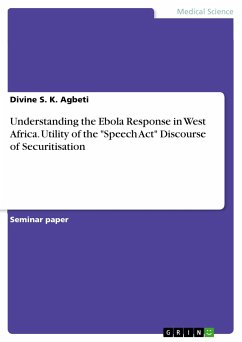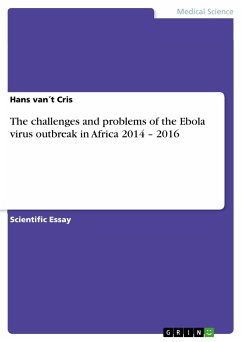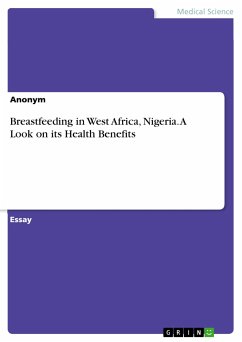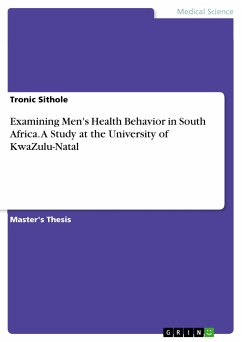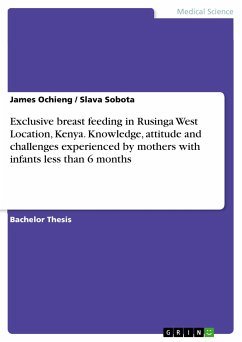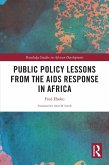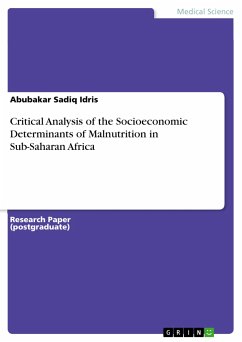Seminar paper from the year 2015 in the subject Health - Public Health, , language: English, abstract: This study argues that the Copenhagen School's conceptualisation of global security tends to favour a 'negative' version of security, fathomed as security from existential threats, supporting the traditional notion of security as survival. This isolates health issues from their systemic causes, instigating responsive mechanisms rather than preventative policies. Accordingly, substantial attention and resources are directed towards communicable, rather than non-communicable and chronic, diseases. The study also claims that this way of conceptualising security conjures the understanding of health via the prism of state interests, as pandemic and communicable diseases are perceived to pose potential threats to state security. Thus, securitisation practice bequeaths priority to state security over human security, and therefore fails to tackle the structural causes of global health inequalities that produce and reproduce these pandemics. This study is divided into two parts: the first critically analyses the theoretical framework of securitisation. It methodically examines securitisation assumptions of Barry Buzan, Jaap de Wilde and Ole Waever (1998); the strengths of the securitisation framework, particularly in securitising health; and limitations of the securitisation theory to understanding global health issues. These analyses set the context for the second part of the study, 'Ebola case study in West Africa - Guinea, Liberia, and Sierra Leone'. The Ebola case study particularly demonstrates that global health issues only become security priorities when Western countries feel threatened, most especially when coined as a national security threat to the US and the UK.
Dieser Download kann aus rechtlichen Gründen nur mit Rechnungsadresse in A, B, BG, CY, CZ, D, DK, EW, E, FIN, F, GR, HR, H, IRL, I, LT, L, LR, M, NL, PL, P, R, S, SLO, SK ausgeliefert werden.
Hinweis: Dieser Artikel kann nur an eine deutsche Lieferadresse ausgeliefert werden.

